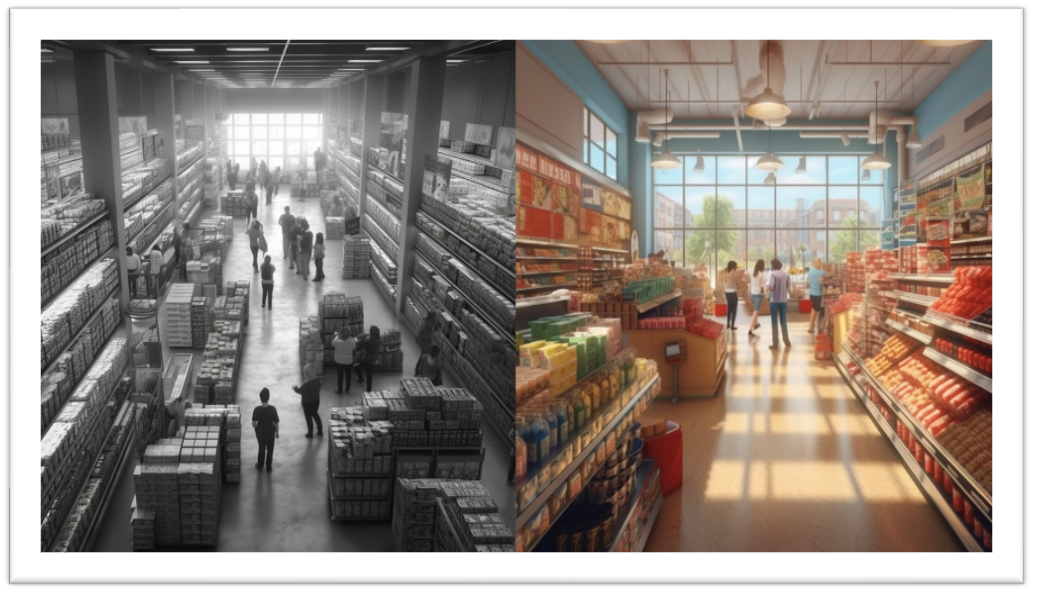Cracking the Code: Identify the Missing Piece in Your Business Puzzle

Grow your business through a well-developed customer experience.
You are a business leader in an environment with a strong headwind. You stand at a puzzling crossroad, and the frustration is mounting.
You are growth-minded and increasingly risk adverse. Should you focus on austerity – should you look to operational efficiency and cost reductions to preserve the bottom line?
Wait, it gets worse. Competitors are maneuvering. Some are lowering prices. Another just announced a collaboration that will further cut into your already flatline market share growth.
There is a way to crack the Enigma Code of business growth, even in difficult market conditions.
A mentor once to me, “problems are like puzzles to be solved.” Like jigsaw puzzles, business problems consist of repeating patterns. Recognize the patterns, and you are likely to get close to a solution.
Differentiation and customer experience are the essential puzzle pieces to business growth.
Foundational as it may seem, there are still way too many small businesses that don’t get it when it comes to standing out from the pack and proving value at each stage of the buying journey.
A Too Familiar Case of an Inward Mindset
I recently worked with a startup who struggled to communicate their innovative service to a mature market. The executives and product marketers were convinced the solution would be a game-changing breakthrough. They believed the market was ready for disruption. Not only was the market not ready for the "solution", they viewed it as a threat. The company's inward focus bordered on arrogance.
Innovation doesn’t happen in the product laboratory or the marketing conference room. It happens when customers use tools and services to solve real problems that people will pay to have solved.
Until your customers use your solution to solve their problems, there can be no innovation.
The business I described above had an even bigger problem. Their business model was conceived in a vacuum. The pricing model was unfamiliar to the market. The service implementation model missed the mark too – customers were not ready for self-serve. They wanted a partner to help them manage change. Some of the misalignment with the market could have been smoothed had there been a sustained educate the market, and an early adopter influencer campaign been executed.
When the leaders for this business came to terms with their failing situation, they set a new course. Recognizing their inward focus was like a self-inflicted wound, they committed to being intentional about customer centricity.
Here's how we are are helping to crack the code for this customer.
Seven turn-around tips for gaining market share and delivering impact:
- Walk in the customer’s shoes – First, identify your most profitable customers. Ask to speak with them. Get to know the problems they are trying to solve. Ask how they solve their unique problems now. Understand how they buy and who makes the decision to buy. Also talk to ideals customers who did not buy from you. If you are not prepared to conduct these discussions with customers, outsource the activity. It is that important.
- Help customers understand where you bring value to their lives – Customers do not buy unless they have a problem that your solution solves. Be clear on how your solution solves your ideal customer’s problem. Be clear on how your solutions stands out from the pack. Help your customers see how their lives will be better with your solution.
- Reduce friction in the buying process – Unnecessary handoffs, employees lacking empathy, and poor communication are non-starters for customers. Review your customer journey from the customer point of view. Smooth out the rough edges and make sure everyone in your organization understands your brand’s intentional buying journey.
- Provide value in every touch with your brand – This is a simple concept that helps to distinguish your brand from the “me to” brands. It is based on understanding your customers so well and providing valuable experiences at each step in their journey. Sometimes the simplest of unexpected gestures can go a long way to delight a customer.
- Remain relevant – Customer needs change all the time. What landed a customer may not be enough to keep a customer. Be prepared to pivot. Stay close to customers. It really is ok to ask, “how are we doing…is there anything more we can do for you?”
- Give people reasons to tell their friends – If customers talk about you at all to their friends, it’s because you made them angry or because you provided a super experience. No one talks about meh service. Give them reasons to want to talk about your brand.
- Invest in your customer community – This is the future of marketing…customers wanting to belong to your brand. This is about enabling and supporting the conditions for customers to increase their affinity with you and others around themes and experiences that make a difference to them.
A win-win relationship with customers is possible when businesses lean in to understanding customer needs. Even in challenging market conditions, businesses can grow their market share and deliver impactful experiences that customers will value. Do it right, and they will tell others about their experience with you.



